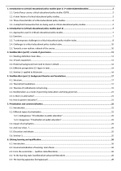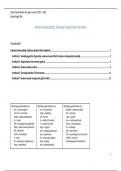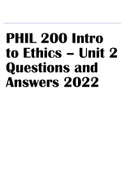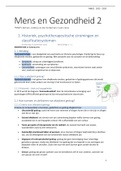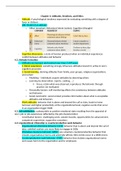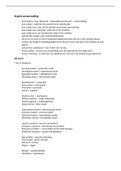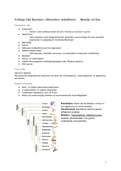College aantekeningen
Samenvatting - Educational Policy
Samenvatting van het vak Educational Policy uit de eerste master van Pedagogische wetenschappen: onderwijs en vorming & Educatieve studies. Het vak wordt gegeven in het Engels. De samenvatting is ook in het Engels. Dit document bevat alle hoorcolleges en is inclusief met practicums. Hierbij haal...
[Meer zien]
